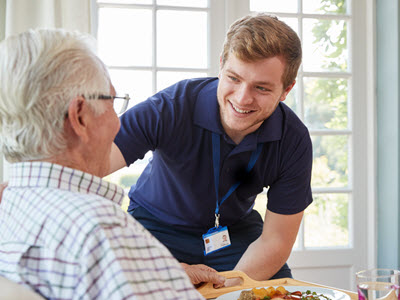Care for Yourself As You Care for Others
 Caring for elderly parents as they decline in health is a common occurrence adult children are faced with these days.
Caring for elderly parents as they decline in health is a common occurrence adult children are faced with these days.
Families are also faced with caring for a parent or loved one affected by a terminal illness that involve end of life concerns.
You may find yourself in this situation as a caregiver and feel conflicted as to what to do and who to talk to.
Slipping to the Back Burner
Caring for elderly parents is a lot to manage when you’re also managing a household of your own.
Caring for yourself mentally, emotionally, physically, and spiritually falls to the back burner.
Perhaps you feel as if you’re burning the candle at both ends and it’s difficult to catch a break. You’re at your wits end, overstressed, overtired, overworked, always on constant alert, and exhausted.
The Demands of Caregiving Often Involve Constant Stress and Worry
Difficult decisions have to be made by family and caregivers that often relate to medical care, financial responsibility, living arrangements in home or facility, safety in the home, level of daily care required, palliative care, hospice care, etc.
It’s not easy taking on additional responsibilities to provide for elder parental care.
There’s a wide range of emotions that fluctuate and are difficult to tease apart: compassion, anger, frustration, love, guilt and resentment, to name a handful.
Even with the welcome help of assisted living and home health services, you’ve swapped one set of responsibilities regarding living arrangements for another — it now becomes managing your parents finances, dealing with Social Security and adjunct insurances, ordering medications, becoming their legal representative, interfacing with support staff, and simply helping find basic daily living comforts that make everyday life enjoyable.
Support for Caregivers at All Stages
If you’re beginning to enter into this role of responsibility for your parent(s), or if you’re a seasoned and perhaps weary caregiver in need of processing your own experience and how you may care for yourself so that you can continue to care for others, I welcome the opportunity to meet with you.
If you’re faced with making decisions about palliative care or hospice care and need a safe place to discuss your concerns or fears, I will walk with you to help you navigate your decision-making process.
For now, let me gently remind you that you can only care for others if you preserve your own self. To do that truly is the most loving choice.
Choose self-care so that you may care in a way that permits your true self to be present.
Call (615) 852-5055 for a free consultation.

